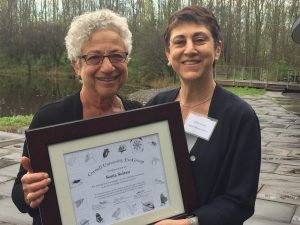Sultan Delivers Lectures around the World

This spring, Sonia Sultan, professor of biology, professor of environmental studies, has delivered several notable invited talks in different parts of the world.
In February, she presented the annual Darwin Day talk at the University of Glasgow in Scotland. Sultan was the first woman scientist to present this prestigious lecture, in which a prominent evolutionary biologist shares their research and its broader implications. Sultan spoke on “Eco-Devo Insights to Evolutionary Questions,” using results from her Wesleyan lab’s plant research to address basic questions about individual development, inheritance, and adaptation. She was also interviewed about her contributions to current evolutionary biology for the University of Glasgow’s Institute of Biodiversity, Animal Health & Comparative Medicine podcast, Naturally Speaking.
In April, Sultan also gave a research seminar in Mexico City at the National University of Mexico’s Institute for Ecology, and in March, she presented her work to philosophers of biology at a European Union–sponsored conference in London.
Finally, on May 10, Sultan delivered the Harrison Keynote Lecture at Cornell’s annual “Evo Day” evolutionary biology symposium. The lecture is named in honor of Rick Harrison, an influential and much admired evolutionary biologist who served on the Cornell faculty until his death in 2016. Sultan’s next speaking event will be to give the closing lecture at a September meeting on “Advances in Evolutionary Biology” at the Max Planck Institute for Evolutionary Biology in Plön, Germany.

